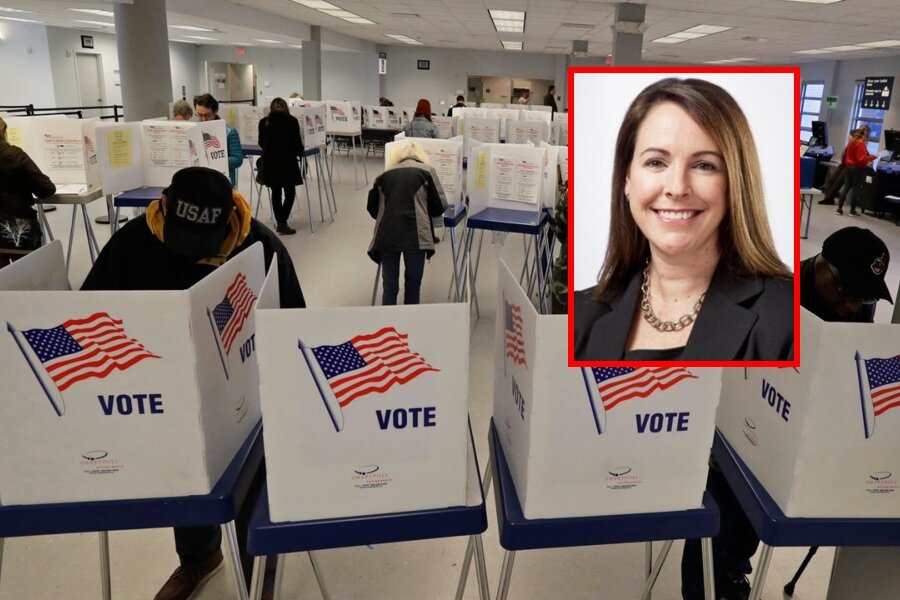A federal judge in Ohio has invalidated an election law that prohibited nearly anyone, except a small group of close relatives, from returning an absentee ballot on behalf of a person with a disability.
Judge Bridget Meehan Brennan of the U.S. District Court for the Northern District of Ohio issued a judgment on July 22, blocking the enforcement of a section of Ohio’s House Bill 458.
This section had made it a felony for anyone, other than an election official or mail carrier, to possess or return the absentee ballot of a disabled voter unless the individual assisting was on a list of authorized relatives.
The Ohio election law, which took effect on April 7, 2023, restricted the authorized relatives who could return an absentee ballot for a disabled voter to those listed in Section 3509.05 of the Ohio Revised Code. This list included the voter’s spouse, parents, grandparents, siblings, aunts, uncles, nieces, and nephews.
Anyone who was not on the authorized list of relatives, and who was not an election official or mail carrier, could be charged with a felony for mailing or returning an absentee ballot to the board of elections.
The law, which did not provide any basis for expanding the list of permitted facilitators if the disabled voter did not have such a relative available to them or who preferred to get the help of their caregiver, was challenged in a lawsuit.
The complaint was filed on Dec. 19, 2023, by the American Civil Liberties Union (ACLU) on behalf of the League of Women Voters of Ohio and Jennifer Kucera, an individual Ohio voter with a disability.
The lawsuit contested the Ohio voter law on four counts, alleging it violated Title II of the Americans with Disabilities Act, Section 504 of the Rehabilitation Act, and Section 208 of the Voting Rights Act. Additionally, the suit claimed the Ohio law was void for vagueness.
The judge dismissed three of the plaintiffs’ claims without prejudice but upheld their allegation that the law violated Section 208 of the Voting Rights Act.
This section ensures that “any voter who requires assistance to vote by reason of blindness, disability, or inability to read or write may be given assistance by a person of the voter’s choice,” as long as the facilitator is not the voter’s employer, an agent of the employer, or an officer or agent of the voter’s union.
“The text of Section 208 unambiguously allows disabled voters to choose for themselves who will assist them in voting, and that the Challenged Ohio Law’s limitations of this choice to only certain family members is unlawful and unenforceable,” Judge Brennan wrote in the memorandum and opinion.
Ben Kindel, spokesman for Ohio Secretary of State Frank LaRose, who was named as one of the defendants in the lawsuit, expressed disagreement with the ruling, characterizing it as an act of judicial overreach.
“We obviously disagree with the decision, and we’ll be consulting with our counsel, the attorney general, on next steps,” Mr. Kindel said in a statement.
“This is a challenge to a law passed by the General Assembly, which has the exclusive authority to set the rules of Ohio’s elections, so they’ll likely be considering the court’s ruling here as well,” he added.
The ruling was praised by the ACLU and the League of Women Voters of Ohio.
Share your thoughts by scrolling down to leave a comment.













